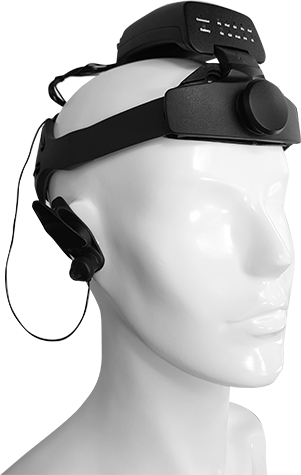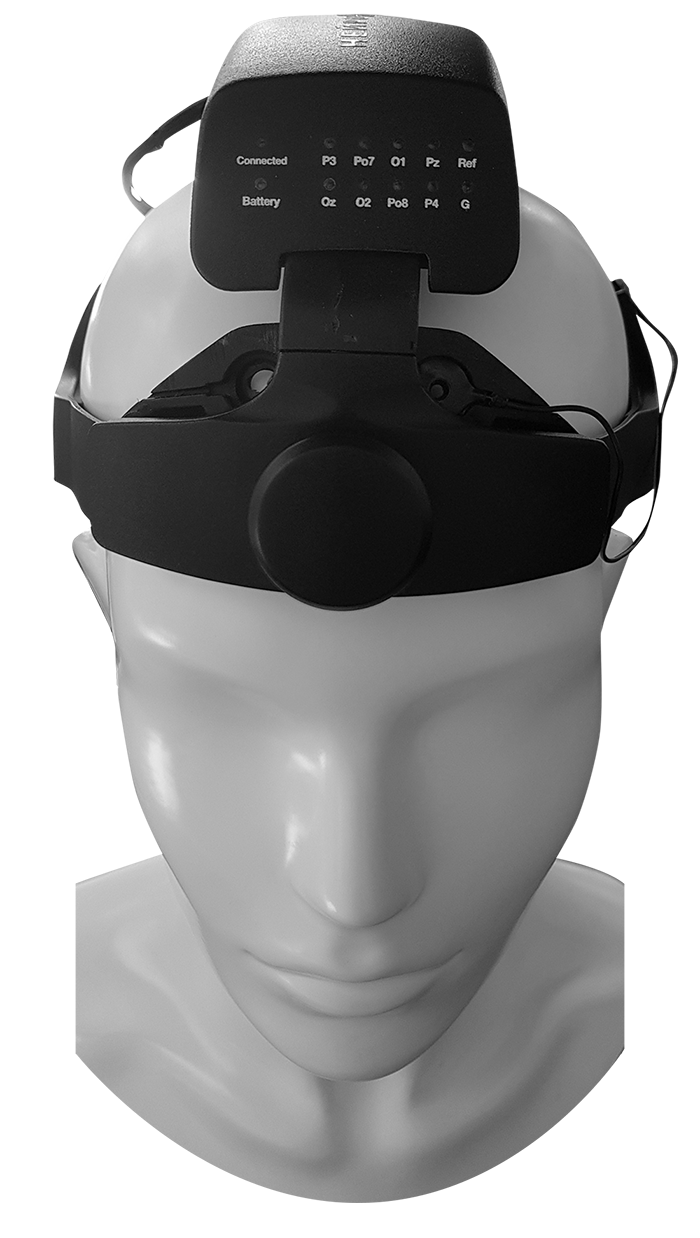1. How does NeuroChat work?
There is a virtual keyboard displayed on computer screen, where buttons (whether its letters of the alphabet, words or any other pre-set options) are highlighted in a particular order. The brain reacts in a special way to these “flashes”, which can be observed from its electrical (physiological) activity. NeuroChat registers the physiological activity of the brain and transmits this data to the computer using special software.
If a user focuses on a certain object within the frame and mentally reacts to it in the moment of flashing, computer “understands” which letter or command user wants to select and as a result displays it in a special window. With this you can type letters, words, sentences or choose various commands customized to your own needs.
2. What NeuroChat consists of?
NeuroChat has two main parts: neuro-headset (“helmet” that is placed on the head) and software installed on a computer.
A neuro-headset is a wireless electroencephalograph that records brain activity and transmits it to a computer via WI-FI.
3. NeuroChat is powered by electricity. It is safe?
NeuroChat has passed all the necessary checks and has all the necessary documents confirming the security of the hardware-software complex. Neuro-headset NeuroChat doesn’t require high voltage; an AA size battery is installed in the electroencephalograph. According to its electrical characteristics, it is much weaker than the batteries in modern smartphones.
4. Are there any contraindications?
We do not recommend working on Neurochat to users who either have epilepsy or previously had epileptic activity recorded on an electroencephalogram.
5. Can NeuroChat read your mind?
The answer is no, Neurochat isn’t able to read minds. The operational principle of NeuroChat is based on data from fundamental scientific research conducted by leading neurobiologists in Russia and worldwide, as well as analysis of changes in the EEG data.
Science has not yet acquired the right knowledge and mechanisms on mindreading.
Have any questions?
Ask our specialist and we will reply shortly:




